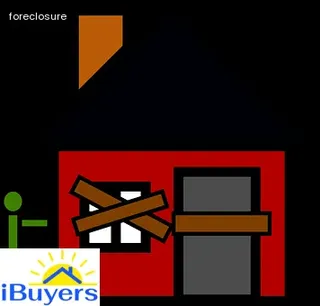When it comes to mortgages in Maryland, homeowners must have an understanding of the relevant state laws and regulations. The mortgage process begins when the borrower applies for a loan.
During this process, the lender will evaluate the borrower's credit score, income, assets and other financial information to determine their eligibility. In Maryland, there are two types of mortgage loans available: fixed-rate mortgages and adjustable-rate mortgages (ARMs).
Fixed-rate mortgages offer a stable rate throughout the life of the loan while ARMs come with an initial interest rate that can change after a predefined period of time. Homeowners should also be aware of foreclosure laws in Maryland which vary depending on whether they have a conventional or government-backed loan.
Generally speaking, lenders must follow specific timelines and procedures before initiating a foreclosure including providing written notice to the homeowner and offering alternatives to foreclosure such as repayment plans or loan modifications. Understanding these mortgage loan options and rules around foreclosures will help Maryland homeowners make informed decisions when it comes to their mortgage situation.

Missing a payment on your mortgage in Maryland carries serious consequences, including the potential for foreclosure. The state of Maryland has specific laws that govern foreclosure procedures and timelines which must be followed by lenders.
If you miss a payment, your lender may send you a notice of default that outlines the amount due and the steps needed to bring your loan current. If you are unable to catch up on payments within the timeline outlined in this notice, your lender can start the foreclosure process.
Additionally, if you fail to pay taxes or insurance premiums associated with your home loan, it is also considered a missed payment and can trigger a foreclosure action. To avoid these potential consequences of missing a payment in Maryland, it is important to stay on top of all payments and communicate with your lender if financial hardship arises.
Receiving a breach letter is the first step in the Maryland foreclosure process. It is an official notification from your lender that you are behind on your mortgage payments and have breached the terms of your mortgage agreement.
The letter will typically explain how much money you owe, how long you have to make the payment, and what legal recourse your lender may take if you don’t pay. Homeowners need to understand that the letter does not mean foreclosure is imminent – it just means that if they cannot come to an agreement with their lender, then foreclosure proceedings may begin.
It is important for homeowners to take immediate action upon receiving a breach letter and contact their lender as soon as possible to discuss potential options such as loan modification or repayment plans. Additionally, homeowners should research local or state-specific laws regarding foreclosure and seek help from experienced legal counsel if needed in order to better understand their rights and obligations before taking any action.

When it comes to foreclosures, the process can be confusing and complicated for homeowners in Maryland. The foreclosure process can start in a variety of ways depending on the type of loan taken out, who holds the mortgage, and what kind of foreclosure laws are applicable in Maryland.
Generally, the foreclosure process begins when a homeowner is unable to make their mortgage payments and notices are sent from the lender or servicer. This notice typically states that payment is due within a certain amount of time and provides an opportunity for a cure before more formal proceedings take place.
If payment isn't made within this timeframe, then a Notice of Intent to Foreclose may be sent by the lender or servicer which gives homeowners 30 days to either pay off any unpaid balances or enter into some form of alternative arrangement with their lender such as loan modification or forbearance. If no agreement is reached within this period, then a Foreclosure Complaint will be filed by the lender or servicer with the court system initiating active legal proceedings.
It's important for homeowners facing foreclosure to understand exactly how these processes work so they can protect their rights under Maryland law.
The Maryland foreclosure process and laws for homeowners can be difficult to navigate. It is important for homeowners to understand the various types of foreclosure that may be applicable in the state of Maryland.
The two main types are judicial and non-judicial foreclosures, with each having its own set of rules and regulations. Judicial foreclosures take place when a lender files a lawsuit against a homeowner in court in order to recover what is owed on the mortgage.
This type of foreclosure requires the lender to prove their case in court before they can repossess the home. Non-judicial foreclosures, on the other hand, do not require any court action; instead, lenders must adhere to state-specific laws and procedures in order to repossess the property.
In both cases, homeowners may have certain rights under federal or state consumer protection laws or other forms of protection such as bankruptcy or forbearance. Understanding these different types of foreclosure processes is essential for homeowners navigating the Maryland foreclosure process and laws.

Navigating the Maryland foreclosure process and laws is a complicated endeavor, but understanding the steps involved can help homeowners who are at risk of losing their homes. The first step in the process is for lenders to file a Complaint of Foreclosure with the court, which begins the judicial foreclosure process.
This sets in motion a timeline that requires homeowners to respond within 30 days, or else they will be considered in default. If this happens, lenders can request an Order of Sale from the court as soon as 45 days after filing the complaint.
Homeowners also have the option to challenge this order if they believe it to be unfair. Once an Order of Sale is granted, foreclosure proceedings move forward and homeowners have only 21 days to redeem their property by paying off any debt owed on it.
If that doesn’t occur, then a public sale will be held on the courthouse steps where the property can be sold to a third party or back to its original lender. Lastly, if no sale occurs during this period then ownership reverts back to its original lender.
Despite this complex process, homeowners should know that they do have some rights and options during each step of Maryland's foreclosure procedure.
In Maryland, the loss mitigation process is regulated by both federal and state laws. The foreclosure process in Maryland is based on the common law concept of judicial foreclosure.
This means that a lender must sue a borrower before taking possession of their property. The foreclosure process begins when a lender serves the homeowner with a complaint for foreclosure.
Upon service, the homeowner has 30 days to respond to the complaint and can file an answer in court. The homeowner should also take action to obtain legal advice from an attorney specializing in real estate law as soon as possible.
The court may require mediation before allowing a sale to occur and will appoint a commissioner or referee to oversee the sale of the home if it is foreclosed upon by the lender. Homeowners may also be able to negotiate directly with their lenders, who are required by federal law to provide borrowers with all available options prior to initiating foreclosure proceedings, including loan modification and forbearance agreements.
In addition, even after initiating foreclosure proceedings, lenders are still required by state law to consider any late payments that have been made since filing for default and offer homeowners options such as mortgage reinstatement or payment plans before moving ahead with a sale.

Pre-foreclosure is a term used to refer to the state of a property when the homeowner has missed a few mortgage payments and the lender has filed for legal action against them. It is important for homeowners in Maryland to be aware of the pre-foreclosure process and laws surrounding it, as well as how they can avoid it.
To start with, understanding the foreclosure process itself is critical. In Maryland, lenders must file a court action to begin the foreclosure process; this generally includes notifying the homeowner of their rights under state law.
If a homeowner is able to catch up on their payments before this happens, they can avoid pre-foreclosure altogether. Additionally, homeowners have certain rights that must be respected throughout this process; these include being informed about all actions taken by the lender and having ample time to respond.
Homeowners may also be able to take advantage of mediation services or other programs that can help them come up with solutions for their debt problems without needing to resort to foreclosure - although ultimately avoiding financial hardship in the first place is always ideal.
When it comes to foreclosure in Maryland, the first step that a homeowner must be aware of is receiving notice of a mortgage default. Homeowners should be aware that there are certain legal requirements that must be met in order for the lender to be able to proceed with foreclosure.
In many cases, lenders must provide homeowners with written notification at least 45 days before initiating any court action. This written notification must include specific details about the default and potential options for resolving the default.
It is important for homeowners to understand their rights when it comes to receiving this notice as well as their timeline for responding if they wish to dispute or negotiate the foreclosure process. It is also recommended that homeowners seek legal advice from an experienced attorney in order to ensure they are being treated fairly throughout the foreclosure process and that all laws related to foreclosures are being followed.

Navigating the redemption period in a foreclosure can be a daunting task for Maryland homeowners. The redemption period is the amount of time that a homeowner has to repay the debt owed on their home after it has been foreclosed upon.
Knowing how to properly navigate this period is essential for saving your home and keeping your rights as you move through the foreclosure process. The length of the redemption period will vary depending on several factors, including whether or not you have a homestead exemption and if you are considered an owner-occupier or an investor in the property.
If a homeowner is able to redeem their home within the allotted timeframe, they may be able to reinstate their original loan agreement or seek other remedies from the court. Homeowners should also be aware of any specific state laws or regulations related to foreclosure proceedings, such as those that pertain to tenants living in foreclosed properties or those that outline what happens when there are multiple mortgage holders involved in a foreclosure case.
Understanding these laws can help homeowners better advocate for themselves during a foreclosure case and exercise all available options during the redemption period, giving them the best chance of successfully reclaiming their home.
The state of Maryland allows lenders to pursue a deficiency judgment against the homeowner after a foreclosure. This means that if the proceeds from the foreclosure sale do not cover the full amount of the loan, then the lender can seek to recover the difference from the borrower.
A deficiency judgment is a civil court action that seeks an additional money judgment for any amount still owed on the loan. In order for a lender to seek a deficiency judgment after foreclosure in Maryland, they must file a complaint within three months of the foreclosure sale.
The homeowner will be served with notice and must respond by filing an answer with their local court. If no answer is filed, then a default judgment may be entered in favor of the lender allowing them to collect on any remaining debt.
It's important for homeowners to understand their rights and obligations when it comes to deficiency judgments in Maryland so they can take appropriate action to protect themselves and their financial interests.

The amount of time that a foreclosure will take in Maryland depends on many factors, such as the complexity of the case, the type of loan, and how quickly paperwork is filed. Generally speaking, it can take anywhere from three to six months for a lender to initiate and complete a foreclosure process in Maryland.
In some cases, the process may be longer depending on the amount of debt owed, any potential defenses that are asserted by the homeowner, or other reasons. During this time period, homeowners should make sure they understand their rights under Maryland law in order to protect themselves from unlawful practices.
Additionally, they should become familiar with all relevant deadlines related to filing documents and attending hearings. Furthermore, homeowners should be aware of possible alternatives to foreclosure that may be available in their situation such as loan modification or refinancing options.
Being proactive and educated during this time period can help ensure that homeowners receive fair treatment throughout the foreclosure process.
If you are a Maryland homeowner facing foreclosure, there are some steps you can take to avoid or delay the process. Start by researching the Foreclosure Prevention Programs in your area and be sure to check if you qualify for assistance.
You may also be able to refinance your mortgage to get better terms and lower payments, or apply for a loan modification. Be sure to contact your lender as soon as possible if you think you may miss a payment.
Many lenders offer forbearance agreements so you can catch up on payments without going into foreclosure. If all else fails, it may be worth considering selling the property as a short sale before it goes through foreclosure – this will help protect your credit score from damage and allow you to move on with your life without owing money to the lender.

Homeowners faced with foreclosure in Maryland have rights under both federal and state law that they should be aware of. It is important to understand that foreclosure laws vary by state, and the process in Maryland can be complex.
Federal law provides a number of protections to homeowners who are facing foreclosure, such as the right to receive certain notifications during the foreclosure process, including information about potential alternatives to foreclosure. Additionally, homeowners can often dispute their lender’s actions if they believe they have not followed the proper procedures or acted in good faith.
At the state level, Maryland has passed laws providing additional protection for homeowners facing foreclosure. For example, lenders must provide borrowers with an explanation of their rights under Maryland’s Foreclosure Mediation Program and may be required to attend a mediation session before moving forward with a foreclosure action.
Knowing your rights is key to navigating the Maryland foreclosure process, so it is important for homeowners facing foreclosure to become familiar with both federal and state law regarding this issue.
If you are facing foreclosure in Maryland, it is wise to seek the help of a professional. Working with an attorney or other foreclosure expert can help you understand the legal process and what your options are.
A professional can provide you with advice on how to navigate the complicated and confusing laws that govern foreclosures in Maryland. They can also assist you in negotiating a payment plan or loan modification to avoid foreclosure.
Additionally, they may be able to help by filing motions, attending hearings, and representing you before the court. Furthermore, they may be able to negotiate on your behalf with creditors and lenders, as well as arrange for a short sale or deed in lieu of foreclosure if necessary.
If you are facing foreclosure in Maryland, seeking professional assistance is essential to protect yourself and your rights during this process.

Navigating the Maryland foreclosure process can be intimidating and complex, but there are legal options available to homeowners struggling to pay their mortgage who may be facing a home loss. Understanding the state’s foreclosure timeline and laws is key to exploring ways to stop or delay a foreclosure.
Homeowners can contact a local housing counseling agency for free advice on how to navigate the process, as well as assistance in creating a budget and finding financial assistance programs. In some cases, filing for Chapter 13 bankruptcy may help homeowners catch up on missed payments and keep their home by restructuring their debt into more manageable payments.
Homeowners should also consider negotiating with their lender for an alternative repayment plan that could prevent them from foreclosure. Additionally, certain state laws require lenders to offer loan modifications before beginning a foreclosure action, so understanding those rules is important when discussing payment plans with lenders.
Ultimately, while it can be difficult to face potential foreclosure proceedings, homeowners in Maryland have options that they can explore to stop or delay a home loss through foreclosure.
There are several alternatives to avoiding a full home loss through foreclosure in Maryland. Many homeowners may be able to negotiate a settlement with their lender that provides some measure of financial relief in the form of reduced payments or delayed payments, which can help them avoid foreclosure.
Homeowners may also be able to refinance their existing mortgage loan into a lower rate loan and extend the loan period for more affordable monthly payments. Additionally, homeowners who are unable to pay their current mortgage may be eligible for a loan modification, which reduces the interest rate and adjusts the payment schedule to make it more manageable.
Homeowners can also consider selling their home on their own or enlisting the services of a real estate agent in order to get the most out of the sale and reduce losses from foreclosure. Additionally, homeowners may elect to file for bankruptcy protection, either reorganizing existing debt or seeking liquidation of assets, in order to retain possession of their home and protect it from foreclosure proceedings.

If you're a homeowner in Maryland and you are facing foreclosure, you may qualify for a loan modification program. To determine if you meet the qualifications for this program, there are several steps that must be taken.
First, contact your lender and provide them with the necessary financial information to assess your eligibility. Additionally, speak with a housing counselor or lawyer to help you understand the different types of loan modifications available in Maryland, as well as the process involved.
You will also need to provide proof of your income and expenses, as well as other documents such as tax returns and bank statements. Once all of the paperwork is submitted, your lender will review it and determine whether or not you qualify for a loan modification.
The process can be lengthy and complex, so it is important to have an understanding of what is required before making any decisions.
Navigating a preforeclosure can be an incredibly stressful process, and it is important to consider both legal and non-legal strategies for staying in your home. One of the most effective ways to remain in your home during preforeclosure is to contact your mortgage lender directly and explain the situation.
The lender may be willing to work with you on a payment plan that works with your budget, or even provide financial assistance. Additionally, refinancing the loan or obtaining a loan modification may be possible options for homeowners who are having difficulty making ends meet.
Another strategy is to explore other potential sources of income such as selling shares in the property or renting out part of the house. Homeowners should also remember that there are government programs and nonprofit organizations available which can offer assistance during this difficult time.
Ultimately, while foreclosure laws vary from state to state, understanding all available options can help homeowners stay in their homes during a preforeclosure period.

During a foreclosure process, homeowners can protect their rights by ensuring they have the necessary information to understand their obligations and legal rights. It is important that homeowners are aware of the foreclosure laws in Maryland, as well as any deadlines that must be met.
Becoming familiar with the Maryland Foreclosure Process will allow homeowners to make informed decisions regarding their financial situation. Homeowners should consult with a qualified attorney who understands local laws and regulations, as well as the options available for negotiating with lenders.
Additionally, homeowners may be able to access resources such as housing counseling or other assistance programs to help them through the foreclosure process. Understanding the foreclosure laws in Maryland and having access to reliable resources can help homeowners navigate this difficult process while protecting their rights throughout.
Foreclosure is a difficult process to navigate, but Maryland homeowners do have options to prevent their home from being sold. In some cases, they may be able to qualify for a loan modification or refinance the existing mortgage.
Additionally, Maryland homeowners can take legal action to challenge the foreclosure in court or by filing a complaint with the state's attorney general's office. Other options include submitting an offer of settlement, working with a housing counselor or mediator, and filing for bankruptcy protection.
It is important to understand that each option carries its own risks and benefits and it is best for homeowners to seek advice from an experienced attorney before making any decisions about how best to approach stopping a foreclosure sale in Maryland.

Once a foreclosure is finalized in Maryland, the homeowner generally has to move out within a few weeks. The exact timeline depends upon several factors, such as whether the homeowner will be able to redeem their property by paying off the loan and any other associated costs.
If they are unable to redeem their property, then they will likely have less time before they must vacate the premises. As such, it’s important for homeowners facing foreclosure in Maryland to understand the laws and timelines associated with their situation.
A qualified attorney can provide legal advice and help homeowners navigate the Maryland foreclosure process while ensuring they are aware of their rights throughout the process.
In Maryland, foreclosure proceedings can begin after a homeowner is delinquent on their mortgage payments for three consecutive months. This means that if a homeowner misses three or more monthly mortgage payments, their lender may choose to initiate the foreclosure process.
The lender is not required to start the process until 90 days of delinquency has been established, but they are allowed to do so at any point after the third missed payment. Once the foreclosure process begins, there are certain steps that need to be taken by both the lender and homeowner in order for it to be completed.
It is important for homeowners to understand their rights and obligations during this time so that they can take full advantage of all available options.
Yes, Maryland does have a foreclosure redemption period. Homeowners in Maryland facing foreclosure can take advantage of a period of time set aside to help them in the process.
During this time, homeowners have the opportunity to make up missed payments or otherwise bring their mortgage current. Failing to do so will result in the foreclosure proceedings continuing and the property being put up for sale by auction.
The redemption period is important because it allows homeowners to keep their home if they can come up with the money owed, and it also gives them more options than simply allowing their home to be foreclosed on without taking any action. Understanding the Maryland foreclosure laws and navigating the process is key for homeowners looking to stay afloat during foreclosure proceedings, and the redemption period plays an important role in keeping homeowners from losing their homes.